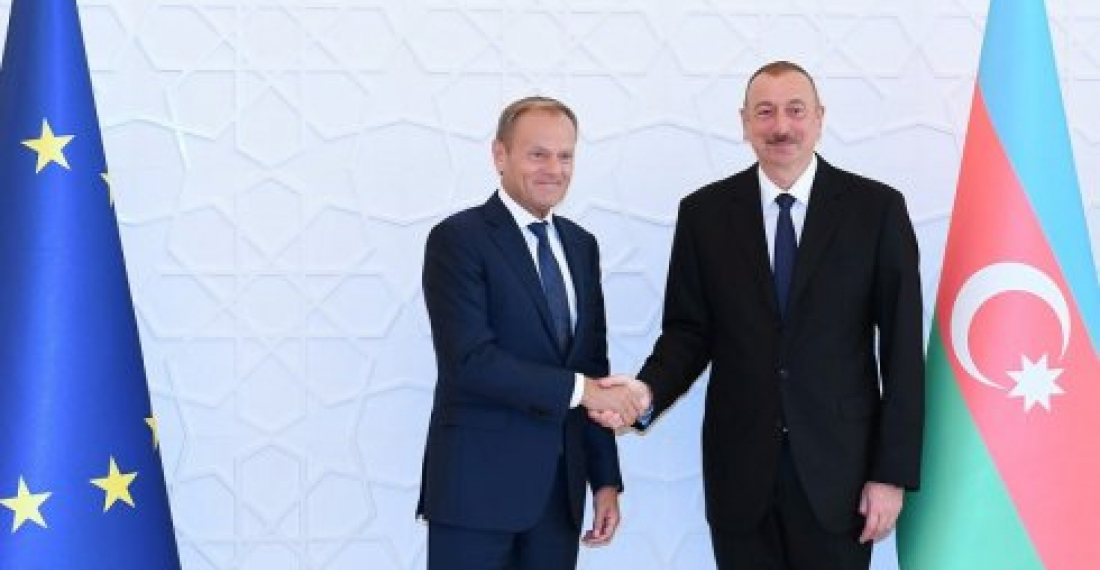The president of the European Council, Donald Tusk, on Tuesday morning (9 July) met in Baku with the president of Azerbaijan Ilham Aliyev. Tusk earlier arrived in Baku at the start of a regional tour.
Welcoming the president of the European Council to Baku the Azerbaijani leader recalled previous meetings with Mr Tusk and said that together they had succeeded in bringing the partnership between the European Union and Azerbaijan to a new and higher level.
The two presidents later addressed the media. President Donald Tusk said:
It is a true pleasure to be back in Baku, the City of Winds.
Azerbaijan is unique. You combine tradition and modernity. You look both to the East and to the West, thanks to your strategic location in today's complex geopolitical landscape. And as I have said before, Mister President, the EU supports Azerbaijan’s sovereignty, independence and territorial integrity.
The EU and Azerbaijan come closer to each other every year. Our relations have intensified and my visit today is another clear sign of this. In 2018 we adopted priorities for our partnership, and our negotiations on a Common Aviation Area Agreement, as well as on the new EU-Azerbaijan agreement, are close to completion. Our economies will profit from them, and our political, business and cultural relations will deepen. And we should of course not forget the Southern Gas Corridor that – quite literally - connects us. This positive momentum should bring our partnership to a higher level, directly benefit all our people, and accompany Azerbaijan's own reform processes and economic diversification.
Azerbaijan has taken impressive steps to transform itself into a transport and logistics hub. I am looking forward to visiting later today the Port of Baku, which is an illustration of Azerbaijan's ambition to the East and the West but also to its northern and southern partners.
Today, in my discussions with President Aliyev, I reconfirmed the EU's readiness to further deepen our cooperation with Azerbaijan, underlining also the essential importance we attach to the respect for the rule of law, human rights and fundamental freedoms. The EU believes that a truly open society is the best guarantee of long-term stability and a good life for all citizens.
Referring to stability in the region, we also discussed the unresolved Nagorno-Karabakh conflict. There is no military solution but only a political settlement in accordance with international law and principles. The EU continues to fully support the efforts of the Minsk Group Co-Chairs and their focus on a fair and lasting settlement based on the core principles of the Helsinki Final Act.
We appreciate the overall decrease of tensions but like the co-chairs, we have been concerned by the recent casualties along the Line of Contact. Restraint is important and so are measures to restore an atmosphere conducive to peace and favourable to productive talks. The EU is already supporting peace-building activities and is ready to assist concrete measures to prepare the populations for peace.
source: commonspace.eu with agencies






